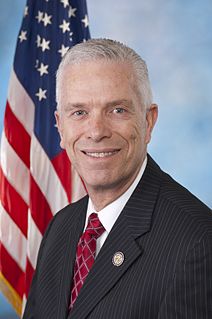A Quote by Georg Wilhelm Friedrich Hegel
Since philosophy is the exploration of the rational, it is for that very reason the apprehension of the present and the actual, not the erection of a beyond, supposed to exist, God knows where, or rather which exists, and we can perfectly well say where, namely in the error of a one-sided, empty, ratiocination.
Related Quotes
The Hopi, an Indian tribe, have a language as sophisticated as ours, but no tenses for past, present and future. The division does not exist. What does this say about time? Matter, that thing the most solid and the well-known, which you are holding in your hands and which makes up your body, is now known to be mostly empty space. Empty space and points of light. What does this say about the reality of the world?
Can it then be doubted, but that God, who is infinitely fine Spirit, and withal intelligent, can make and change all species and kind of body as he pleaseth? But I dare not say, that this is the way by which God Almighty worketh, because it is past my apprehension: yet it serves very well to demonstrate, that the omnipotence of God implieth no contradiction.
Americans are cultured from their earliest years to be either one-sided douloi or one-sided banausoi, i.e. either they cannot think abstractively/conceptually/orchestrally or else they can only think abstractively. Thinking in a truly rational dialectic between intuition and intellect is just beyond the reach of our nation of emotionalist helots. What prevails among us truly has to be called not thinking but "thinking," a pathetic surrogate for actual thinking for the benefit of existentially or modally crippled mentalities.
Now, as there is an infinity of possible universes in the Ideas of God, and as only one of them can exist, there must be a sufficient reason for God's choice, which determines him toward one rather than another. And this reason can be found only in the fitness, or the degrees of perfection, that these worlds contain, since each possible thing has the right to claim existence in proportion to the perfection it involves.
There exists a black kingdom which the eyes of man avoid because its landscape fails signally to flatter them. This darkness, which he imagines he can dispense with in describing the light, is error with its unknown characteristics. Error is certainty's constant companion. Error is the corollary of evidence. And anything said about truth may equally well be said about error: the delusion will be no greater.
Error is a supposition that pleasure and pain, that intelligence, substance, life, are existent in matter. Error is neither Mind nor one of Mind's faculties. Error is the contradiction of Truth. Error is a belief without understanding. Error is unreal because untrue. It is that which stemma to be and is not. If error were true, its truth would be error, and we should have a self-evident absurdity -namely, erroneous truth. Thus we should continue to lose the standard of Truth.
Religion is the vision of something which stands beyond, behind, and within, the passing flux of immediate things; something which is real, and yet waiting to be realised; something which is a remote possibility, and yet the greatest of present facts; something that gives meaning to all that passes, and yet eludes apprehension; something whose possession is the final good, and yet is beyond all reach; something which is the ultimate ideal, and the hopeless quest.
I want to say, and this is very important: at the end we lucked out. It was luck that prevented nuclear war. We came that close to nuclear war at the end. Rational individuals: Kennedy was rational; Khrushchev was rational; Castro was rational. Rational individuals came that close to total destruction of their societies. And that danger exists today.
Put simply, behavioural economics argues that human beings' decision-taking is guided by the evolutionary baggage which we bring with us to the present day. Evolution has made us rational to a point, but not perfectly so. It has given us emotions, for example, which programme us to override our rational brain and act more instinctively.








































